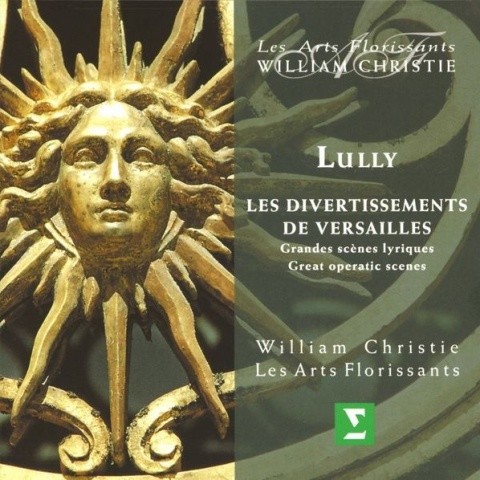
Lully: Les Divertissements de Versailles - Grandes scènes lyriques
"The Best of Lully" probably isn't quite right, but this CD certainly shows the quintessential French Baroque composer at his most affable, dramatic, short-winded, and inventive. All of the music here was composed for the amusement of Louis XIV--you can almost see the flowing powdered wigs and painted-on beauty marks. Lully's formality and French Baroque mannerisms can tire the ear after a while, and I've discovered that listening to this 78 minutes all at once is not a good idea. But having said that, it's pretty gorgeous stuff, and pretty varied as well.
Of course we get our fill of nymphs and swains, shepherds and shepherdesses; and needless to say, everyone's mythological. But the levity of music from George Dandin, one of Lully's comedies, is very different from Armide's or Roland's. In fact, it's in the darker moments where we realize that psychological insights are not absent despite the frou-frou trappings. The duet between Armide and Renaud is fraught with passion and it's nicely underlined throughout by the subtle, commenting orchestra, which in Lully takes precedence over the voice for the most part. The excerpts from Isis are wonderful, particularly the justly famous "Shivering" chorus, which is witty as well as handsome.
The performances are faultless. Paul Agnew's haute-contre remains one of the French Baroque's joys, and here another, named Cyril Auvity, with an even lighter voice (can these people be heard in an opera house?) is equally impressive. Sophie Daneman is fine as ever, and Rinat Shaham, as Armide (in one of the excerpts--the role changes hands later) is potent and vengeful. Olivier Lallouette's Roland is imposing despite how essentially light his bass voice is. (He's sort of an haute-contre in bass clothing and register). As always, William Christie and his instrumental and choral forces are superb, and Erato has recorded it all beautifully. But can anyone tell me why excerpts from the same opera are not presented consecutively? Why are the Armide bits tracks 5 and 14 and the George Dandin highlights 4 and 9? Highly recommended anyway, especially for those wanting a dip into Lully rather than an entire operatic submersion.
--Robert Levine, ClassicsToday.com
